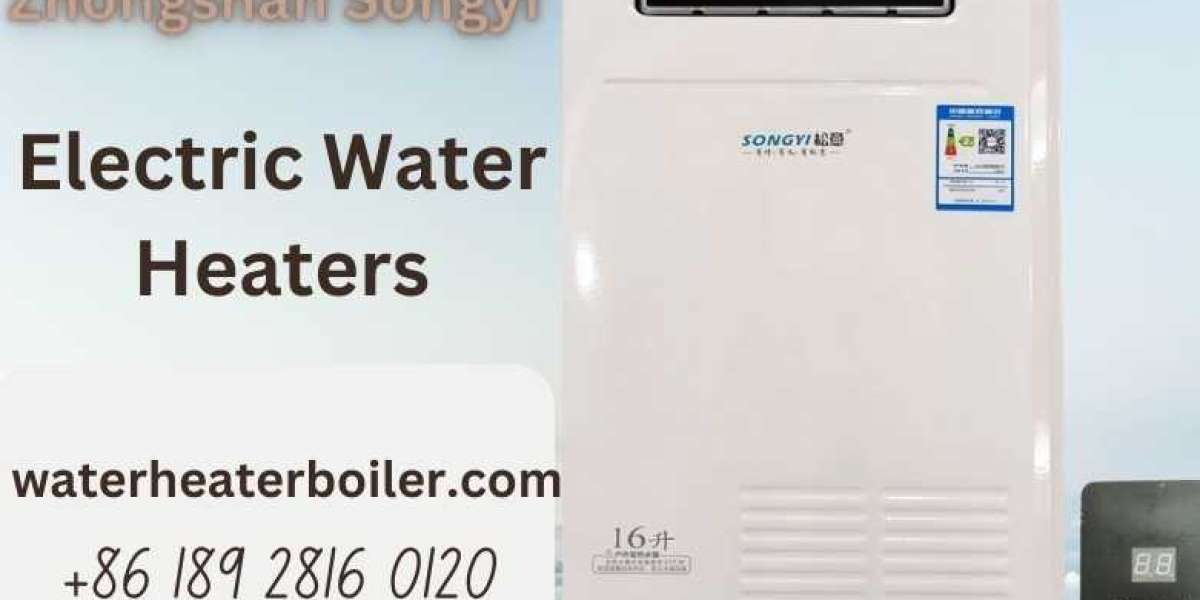Electric water heaters have become an indispensable appliance in contemporary households, offering a blend of efficiency, reliability, and convenience. As the world leans towards sustainable energy solutions, electric water heaters stand out as a popular choice for many. This article delves into the various facets of electric water heaters, exploring their benefits, types, and considerations for choosing the right one for your home.
Benefits of Electric Water Heaters
Energy Efficiency: Electric water heaters are known for their high energy efficiency. Unlike gas water heaters, which can lose energy through venting, electric models convert almost all the energy they consume into heat. This efficiency can result in significant savings on utility bills over time.
Safety: Electric water heaters are generally safer than their gas counterparts. There is no risk of gas leaks or carbon monoxide poisoning, which can be a concern with gas heaters. This makes them a preferred option for families prioritizing safety.
Ease of Installation: The installation process for electric water heaters is straightforward, as it doesn't require venting. This simplicity can lead to lower installation costs and more flexible placement options within the home.
Environmental Impact: With the increasing availability of renewable energy sources, electric water heaters can be powered by clean energy, reducing their environmental footprint. This aligns with global efforts to combat climate change and promotes sustainable living.
Types of Electric Water Heaters
Electric water heaters come in various types, each catering to different needs and preferences:
Tankless (On-Demand) Water Heaters: These heaters provide hot water only when needed, eliminating the standby energy losses associated with traditional storage water heaters. They are compact and can be mounted on walls, making them ideal for homes with limited space.
Storage (Tank) Water Heaters: These are the most common type of electric water heaters, featuring an insulated tank that stores hot water. They come in various sizes, allowing homeowners to choose a model that matches their hot water demand.
Heat Pump Water Heaters: Also known as hybrid water heaters, these units use electricity to move heat from the air or ground to heat the water. They are highly efficient and can save homeowners a substantial amount on energy bills.
Point-of-Use Water Heaters: These compact units are installed near the point of use, such as under sinks or in bathrooms. They provide instant hot water, reducing the need to run water and wait for it to heat up, thus conserving water.
Considerations for Choosing an Electric Water Heater
When selecting an electric water heater, several factors should be taken into account to ensure you choose the best model for your needs:
Size and Capacity: Assess your household's hot water needs to determine the appropriate size and capacity. For example, a larger family may require a storage water heater with a larger tank, while a smaller household might benefit from a tankless model.
Energy Efficiency: Look for models with high energy efficiency ratings. The Energy Factor (EF) or Uniform Energy Factor (UEF) ratings can provide insight into the efficiency of the unit. Higher ratings indicate better efficiency and potential savings on energy bills.
Installation Location: Consider where the water heater will be installed. Ensure there is adequate space and that the location meets any specific requirements for the type of heater chosen. For example, tankless heaters need appropriate venting if installed indoors.
Initial and Operating Costs: While electric water heaters can be more cost-effective in the long run, initial costs can vary. Tankless and heat pump models might have higher upfront costs but offer savings on energy bills. Weigh these factors against your budget and long-term savings potential.
Warranty and Lifespan: Check the warranty offered by the manufacturer, as it can provide insight into the expected lifespan and reliability of the unit. A longer warranty can offer peace of mind and protection against potential issues.
Conclusion
Electric water heaters are an excellent choice for modern homes, offering a blend of efficiency, safety, and environmental benefits. By understanding the different types available and considering key factors such as size, efficiency, and cost, homeowners can select the ideal electric water heater to meet their needs. As technology continues to advance, electric water heaters are likely to become even more efficient and environmentally friendly, making them a smart investment for the future.








